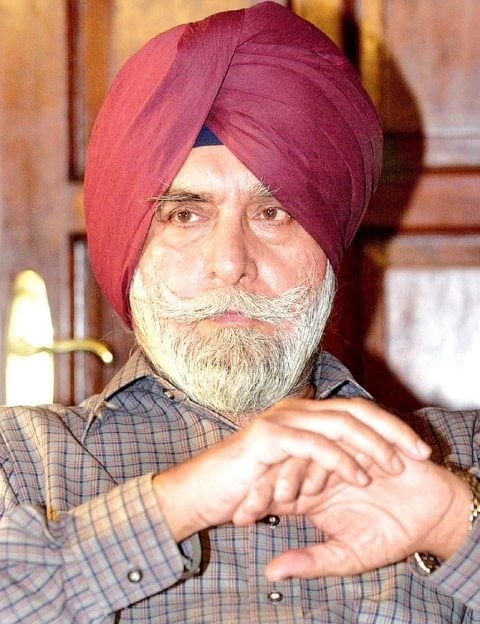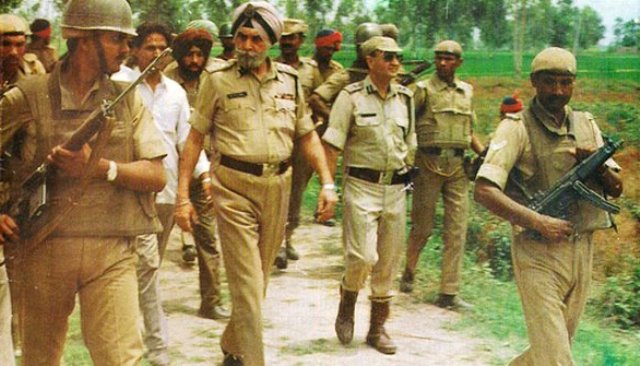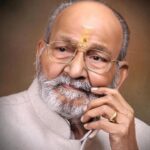KPS Gill Age, Biography, Wife, Facts & More
| Bio | |
|---|---|
| Real Name | Kanwar Pal Singh Gill |
| Nickname | Super Cop |
| Profession | Civil Servant, Author |
| Physical Stats & More | |
| Height (approx.) | in centimeters- 183 cm in meters- 1.83 m in Feet Inches- 6’ |
| Weight (approx.) | in Kilograms- 85 kg in Pounds- 187 lbs |
| Eye Colour | Dark Brown |
| Hair Colour | White |
| Personal Life | |
| Date of Birth | Year 1934 |
| Birth Place | Ludhiana, Punjab, British India |
| Date of Death | 26 May 2017 |
| Place of Death | New Delhi |
| Death Cause | Cardiac Arrest |
| Age (as on 26 May 2017) | 82 Years |
| Zodiac sign/Sun sign | Not Known |
| Nationality | Indian |
| Hometown | Ludhiana, Punjab, India |
| School | Not Known |
| College | Not Known |
| Educational Qualifications | Not Known |
| Family | Father- Rachpal Singh Gill Mother- Name Not Known Brother- Name Not Known Sister- Not Known |
| Religion | Sikhism |
| Hobbies | Reading, Writing |
| Controversies | • During his tenure as the DGP in Assam, Gill was charged with kicking a demonstrator to death. Later, he was acquitted by the Delhi High Court. • He was also criticized by the Human Rights Organizations for violating Human Rights while serving as the DGP of Punjab. • He also faced corruption allegations while serving as the President of Indian Hockey Federation (IHF). • In August 1996, he was convicted under Section 509 (word, gesture or act intended to insult a lady) and Section 354 (outraging the modesty of a woman). The case was filed by Rupan Deol Bajaj, an Indian Administrative Service (IAS) female officer. In her complaint, she mentioned that at a party in 1988, drunken Gill patted her "posterior". |
| Girls, Affairs and More | |
| Marital Status | Married |
| Affairs/Girlfriends | Not Known |
| Wife | Not Known |
| Children | Not Known |
| Money Factor | |
| Net Worth | Not Known |
Some Lesser Known Facts About Major KPS Gill
- Did KPS Gill smoke:? Not Known
- Did KPS Gill drink alcohol:? Yes
- He was born in the Ludhiana District of Punjab, British India.
- He appeared in the Indian Civil Services Examination and cleared it. He was selected in the Indian Police Service (IPS) in 1958.
- First, he was assigned to the Meghalaya and Assam states in Northeast India.
- In the early 1980s, he was appointed as Inspector General of Police in Assam.
- He served in the Northeast region of India for 28 years.
- Gill returned to his home state of Punjab in 1984.
- He served in Punjab as the Director General of Police from 1988 to 1990 and then again from 1991 until his retirement in 1995.
- During his tenure in Punjab, he successfully dealt with Sikh Extremists in “Khalistan Movement.”
- In May 1988, Gill commanded “Operation Black Thunder” to flush out militants hiding in the Golden Temple premises in Amritsar. He allowed the media persons to witness the entire operation. He ordered electricity & water supply to be cut off and forced the militants to surrender in the full glare of television cameras. Compared to “Operation Blue Star” little damage was reported on the Golden Temple. According to sources, 67 Sikh militants surrendered while 43 were killed in the Operation.
- In 1991, Punjab saw the peak of violence when more than 5000 people were killed. In 1992, Gill was appointed as the Chief of Punjab Police to curb the Sikh Militancy. The Punjab Police under the leadership of KPS Gill instituted a crackdown, and in 1993 the death toll had been reduced to 500. Gill applied the bounty of rewards for Police for killing known militants. However, the bounty system backfired Gill’s intentions as the rush for claiming cash rewards turned the Punjab Police into mercenaries.
- After his retirement in 1995, Gill founded the Institute for Conflict Management (ICM) and became its first President.
- He started advising governments on counter-terrorism matters.
- During his lifetime, a number of attempts were made by Babbar Khalsa to assassinate Gill.
- In 2000, the Government of Sri Lanka approached Gill for his advice to tackle the LTTE militancy.
- After the 2002 Gujarat Violence, Narendra Modi (the then Chief Minister of Gujarat) appointed him the security adviser to the state of Gujarat. After his appointment, he successfully controlled the violence and blamed a “small group” of people for the Gujarat riots.
- On 30 August 2007, an academic paper- “The Gill Doctrine: A Model for 21st Century Counterterrorism?” was presented at the annual meeting of American Political Science Association to analyze his tactics in successfully fighting against Punjab Insurgency.
- In 2006, Raman Singh (Chief Minister of Chhattisgarh) appointed him a security adviser to help control Naxalites.
- In 1989, Gill was honored with Padma Shri Award by the Government of India for his contributions to the Civil Services.
- After suffering from a chronic kidney ailment, Gill died of Cardiac Arrest on 26 May 2017 in a hospital in New Delhi.










